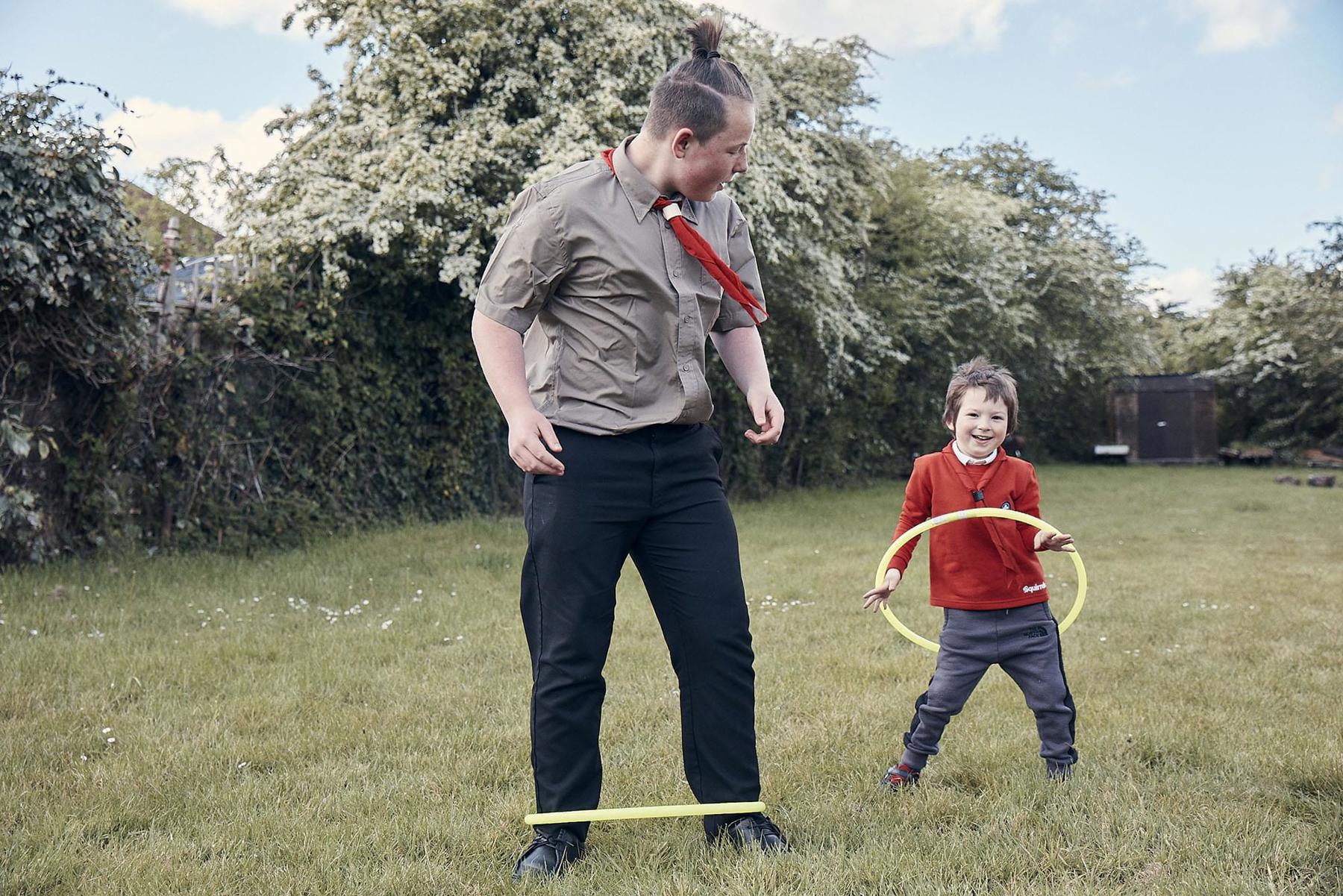100 ways to make volunteering for Scouts better and more enjoyable
Our top tips to help everyone succeed and be happy in volunteering with Scouts.
Scouting makes such a difference to young people’s lives, as well as to the lives of our volunteers, so we’ve put together our set of top tips for a fun, friendly and rewarding experience that will help you to be prepared for anything.
Here are our 100 ways to make volunteering for Scouts better and more enjoyable for everyone.

1. Say thank you. Thank your fellow volunteers, parents and guardians, and young members next time you see them. Share the thanks around, and hopefully they’ll do the same.
2. Celebrate the unsung heroes. Who always goes the extra mile? If it’s a young person, you can nominate them for the annual Chief Scout’s Unsung Heroes Award. If it’s a parent or volunteer, there’s always badges, certificates and chocolate.
3. Cake - make it, eat it and share it. It still makes for the world’s best thank you. We promise this in no way contradicts #7.
4. Do something different. Try and do something new each week to keep your meetings engaging. Use our growing pool of ready-made activity ideas to plan your programme, from making hot air balloons to writing poetry.
5. If in doubt, go out. You can’t beat learning in the outdoors; it’s where we’re supposed to be. Puddle jumping competition, anyone?
6. Invite cool guests in to help you. Do any of your group’s grown ups work for the fire service, look after a Guide Dog in training or rock out in a band? Could they pay a visit to your group to share their stories and talents?
7. Choose fruit for your mid-meeting snack. We know it might be controversial, but your young members’ energy levels will go up.
8. Pass it on. Invite an older Scout to talk to your young people about their adventures. It could spark something that’ll last a lifetime.
9. Run a joint meeting. This could be with another youth group or with another section, as that can be a great way to prepare Scouts for the next stage of their journey. We’ve always found that a campfire brings people together if you’re looking for ideas.
10. Use our supporter’s resources. We’ve got some amazing supporters who’ve helped us to create great resources for you. From HSBC and Nominet to Walker Books and Go Outdoors, we can help your Scouts learn whilst they earn (badges!)
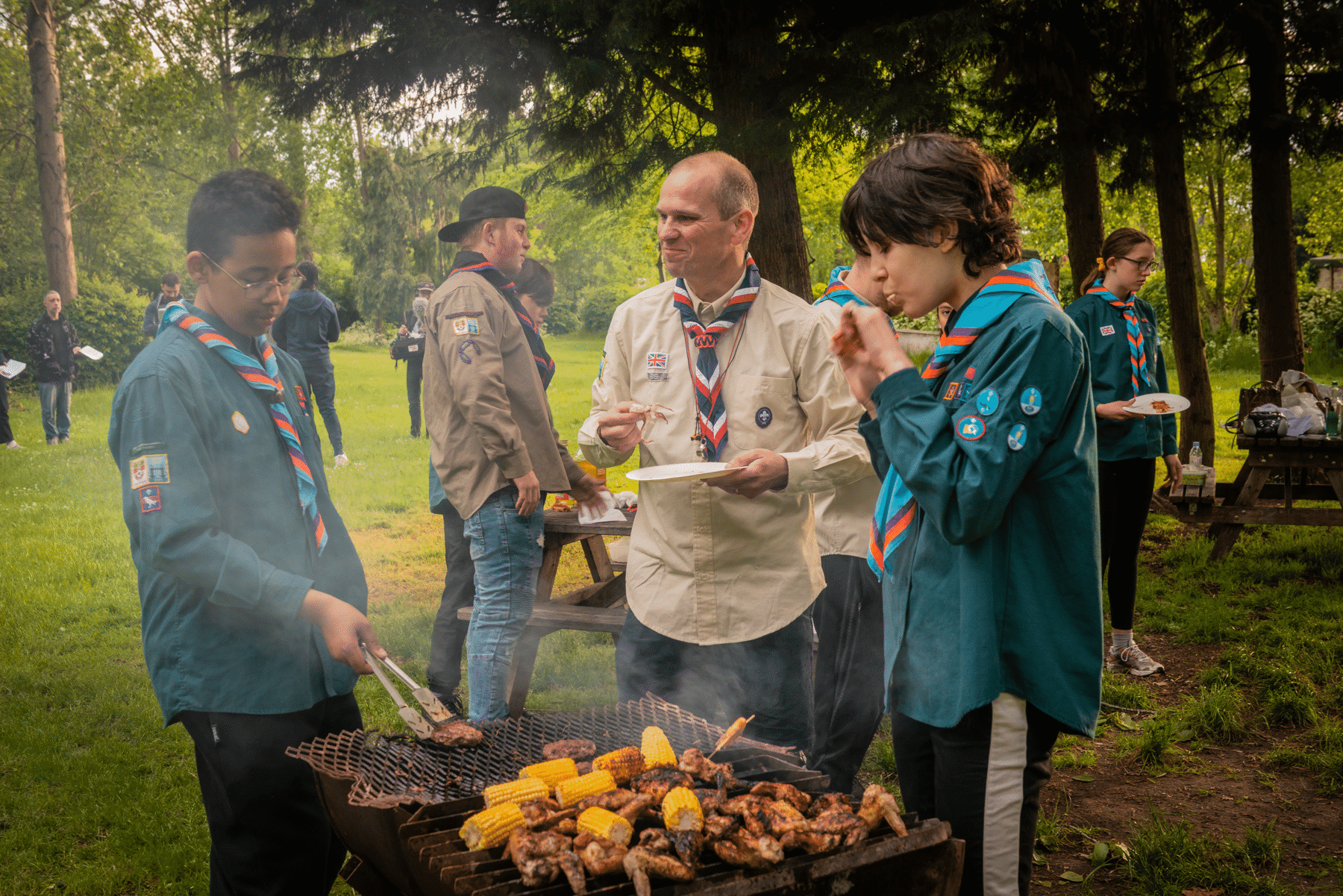
11. Pinch ideas from other sections. Remember, Explorers enjoy crafting just as much as Beavers.
12. Invest Scouts outdoors. Your group could make a circle of torches or candles and invest new Scouts outside in the dark. It’s more memorable that way.
13. Take a mascot round the country. Help Scouts to see more of the UK by getting a group mascot and taking pictures of it anywhere, from Snowdonia to the Isle of Skye.
14. Make a splash. You don’t have to be a Sea Scout to get out on the water. Why not look at ways you can have a floating meeting? From speaking to a local club to borrowing another group’s kayaks, it’s definitely worth taking the plunge.
15. Make fires with chocolate. You might be surprised to know that you can learn to make at least four different kinds of fire with chocolate fingers.
16. Learn to tie knots with strawberry shoelaces. There’s no need to untangle all the ropes afterwards - just eat them! It’s not necessarily one of your five a day, sorry again #7, but a fun way to learn an essential skill. Have a look at how to ‘Tie a tasty reef knot’.
17. Practise some campfire songs. From the Fast Food Song to old chestnuts like the Quartermaster’s Stores, everyone should know a few of these.
18. Know how to make a s’more. If you don’t know what one of these is, ask a Scout.
19. Hold a themed camp. Camping’s great, but camping in space is even better! Ask your Scouts for their ideas to decide on a theme for your next camp.
20. Keep spiders out of tents by putting conkers at the door. We’ve heard it works, but don’t ask us for the proof. We’re just passing this on – sorry spiders!
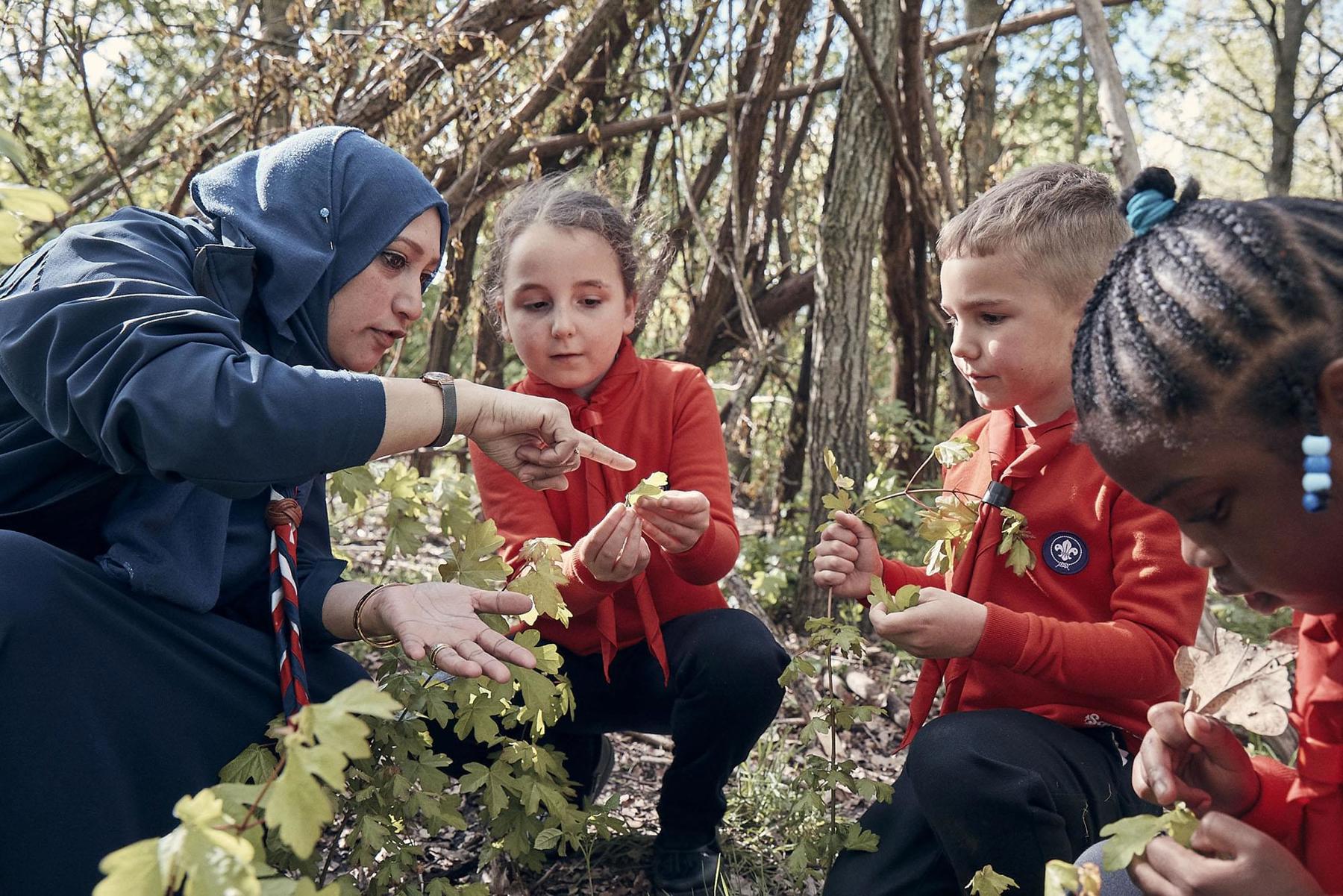
21. Admit when you’re lost. Never be afraid to admit when you’re lost, as it’s always better to own up than to carry on and make things worse. Someone is bound to have a better idea or at least a phone with signal to help you find the way again.
22. Learn to identify trees by their leaves. Let’s face it - young people are bound to ask you at some point.
23. Take on the Platinum Jubilee Challenge. Help Scouts to celebrate HM The Queen’s 70 years as our Monarch and Patron with our 4 ready-made activities and Platinum Jubilee challenge. You can find out about different ways to celebrate on our Platinum Jubilee page.
24. Plan a full moon hike. When’s your next meeting that’s closest to a full moon? Why not make this the moment you and your Scouts go for a night hike? Full of magic, adventure and hot chocolate.
25. Tell stories. One of the most powerful ways to teach people is by telling stories, but you need to think about when and where you tell them. We’ve found Scouts tend to listen more in front of a fire. However, involving #18 helps with that too…
26. Talk to parents and guardians. They’ll love to know how their child is getting on. You can use apps, like a broadcast WhatsApp group, to update parents and guardians with upcoming events and key information.
27. Run your Annual General Meeting as a picnic. Not only is it more relaxing that sitting in rows of plastic chairs on a wet Wednesday evening, but it’s also a chance for the group to bond as a family. Invite families, brothers and sisters to come along too - and maybe use it as a chance to talk about volunteering.
28. Be sparky. Learn three ways to light a fire without a match. You never know when you might forget your matches!
29. Stay safe. Young people’s safety is always our number one priority, so make your Yellow Card your best friend. You could choose to laminate it and turn it in to a key ring for your cupboard keys so it’s always handy.
30. Keep your training up to date. Our training is vital for keeping you and others safe, as well as helping to make sure that we’re supporting young people in the best possible way. Why not check your training expiry dates now?
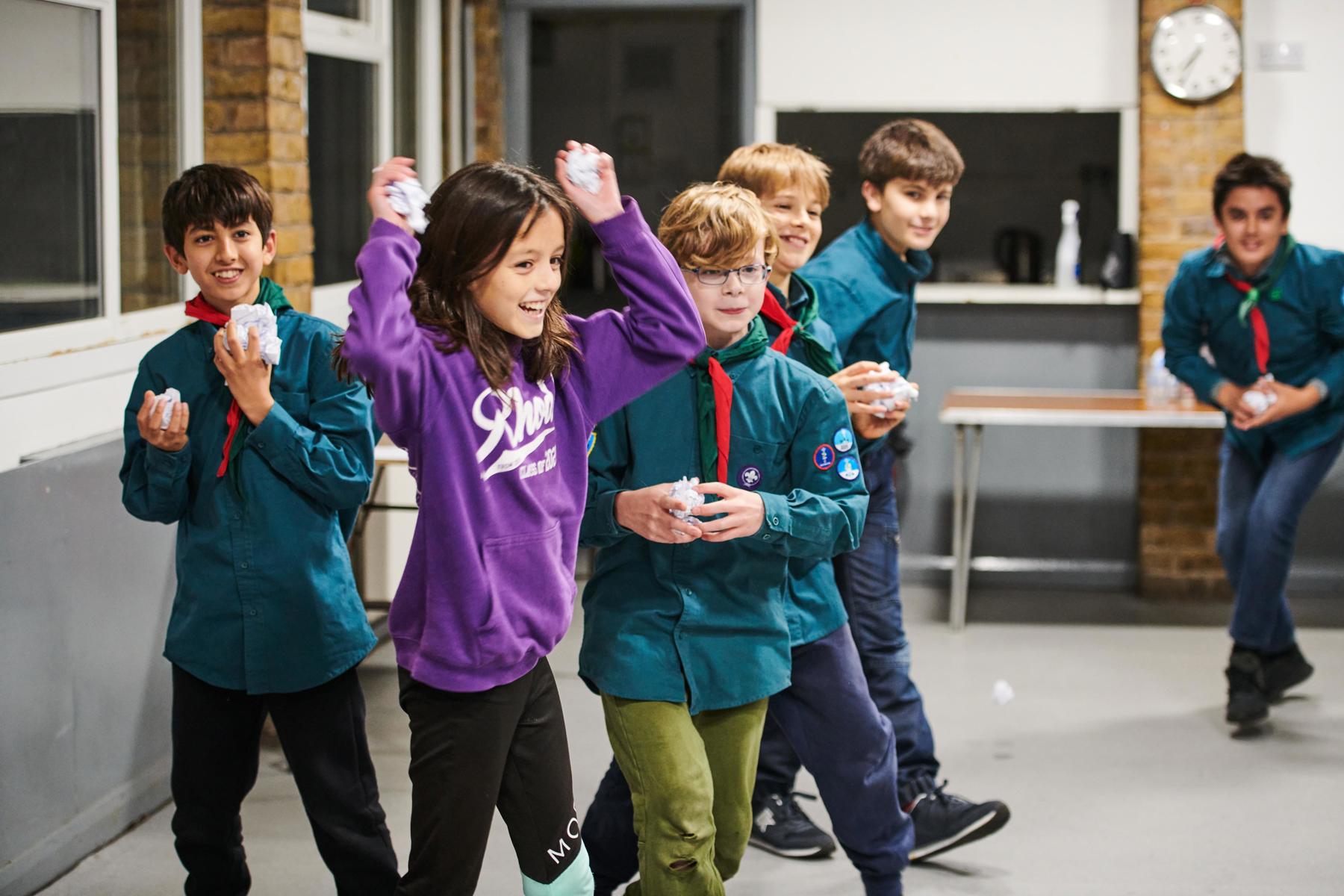
31. Always have a Plan B - and maybe a Plan C too! Make sure you’ve got another activity on hand that you can use as a back-up plan for each meeting.
32. Keep things simple. Don’t try and pack too much into every session. It’s better to do a few things well, and let everyone have time to enjoy the activity, rather than rush through a lot.
33. Be flexible. Things won’t always go to plan. It’s always better to read the room and finish an activity early than push on with something that isn’t working.
34. Be prepared. Create a box of useful things to easily have on hand at every meeting. It could contain lots of great items, such as spare uniform, batteries, matches, woggles, biodegradable wipes, hand sanitiser, your first aid kit, wipes, bin bags, hair tiebacks and duct tape.
35. Know some great 5-minute fillers. If your activity finishes sooner than you thought, it would then be ready to fill in the gap with a quick game. You could make a games folder for your group to try some new ones too!
36. Check your first aid kit. At the start of every term check that everything in your first aid kit is well stocked and in date. It might be worth looking in to getting some extra items too, such as period products, sun cream, or jelly babies for low blood sugar.
37. Spread a smile. Always have three new jokes up your sleeve in case of emergencies. They can be a welcome distraction while applying plasters!
38. Keep a spare t-shirt handy. Paint, mud, oil and ketchup are all part of Scout meetings, so make sure you’re prepared for the worst. Always put a spare t-shirt, and maybe even extra socks, in your bag.
39. A good clipboard knows no bounds. Whether it’s to protect your register from the rain or to keep important schedules from flying in the wind, a good clipboard can help you to keep calm and organised on a busy day.
40. Share your stuff. If you only meet once a week, is there a way to share your space with another community group? Is there another Scout group who could borrow your kit? Set up a local volunteer’s group chat to stay in touch and start sharing.
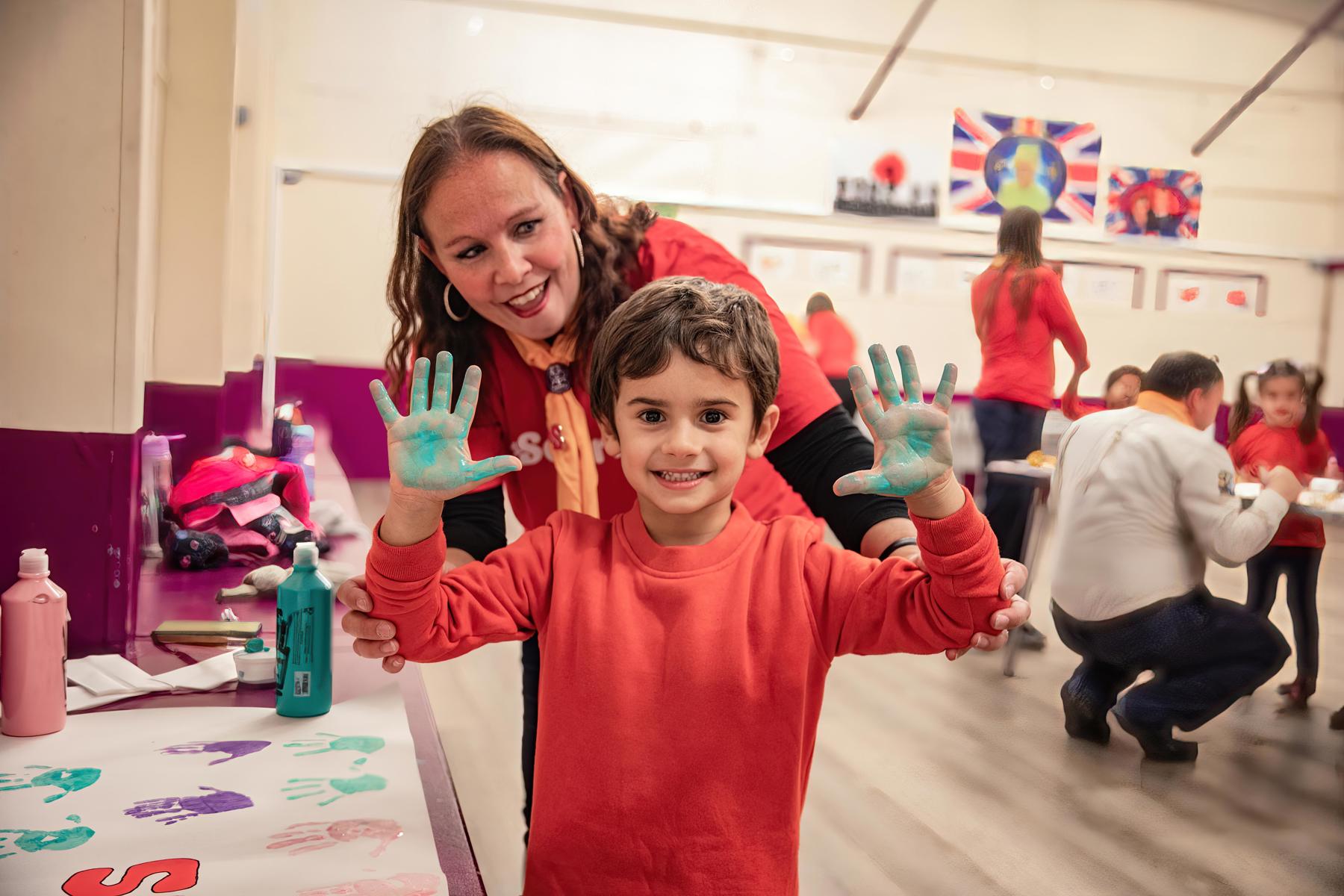
41. Be bold. What could your group do that will be really special this year? Could it be a trip abroad or a chance to speak with astronauts on the International Space Station?
42. Don’t be afraid to be different. That’s how change happens.
43. Share what you’ve learned. If you’ve discovered a brilliant way to recruit new volunteers, a great way to help young people learn or found a super new game, don’t keep it to yourself. Tell other groups and share it online.
44. Let the young people lead. Remember, we’re a youth movement, so let the young people take the lead by choosing the activities they want to do at the start of each term. Why not try running a graffiti night? Cover some tables or a wall in paper and ask the young members to write or doodle their ideas for the upcoming term. Don’t forget to share the plan and talk about what’s coming up so there’s always something to look forward to.
45. Ask your Scouts to come up with a code of conduct together. It works much better when you create something together than imposing your set of rules. From listening to the person who is speaking to helping others, it’s all about living the Scout Promise.
46. Call out bad behaviour. If you think someone isn’t reflecting our Scout values, take them to one side and talk it over with them. If you need any support, you can always report anything to your volunteer manager or take a look at Promoting positive behaviour.
47. Plan a standout session at least once a term. This is the one that Scouts will talk about for weeks to come, and they might even tell their friends outside of Scouts too. Maybe you’ll make water rockets, have a giant bonfire or create a huge treasure hunt!
48. Go global. Take a look at some ideas from Scouts around the world; you could use our activity finder for some inspiration!
49. Join in with jamboree. The next World Scout Jamboree will be in Korea in 2023. Even if you and your Scouts aren’t taking part, find out how you can share in some of the jamboree magic.
50. Don’t be afraid to borrow. Most people will be flattered if you borrow some of their ideas. Always ask them first before using their idea, and don’t be afraid to add your own twist too.
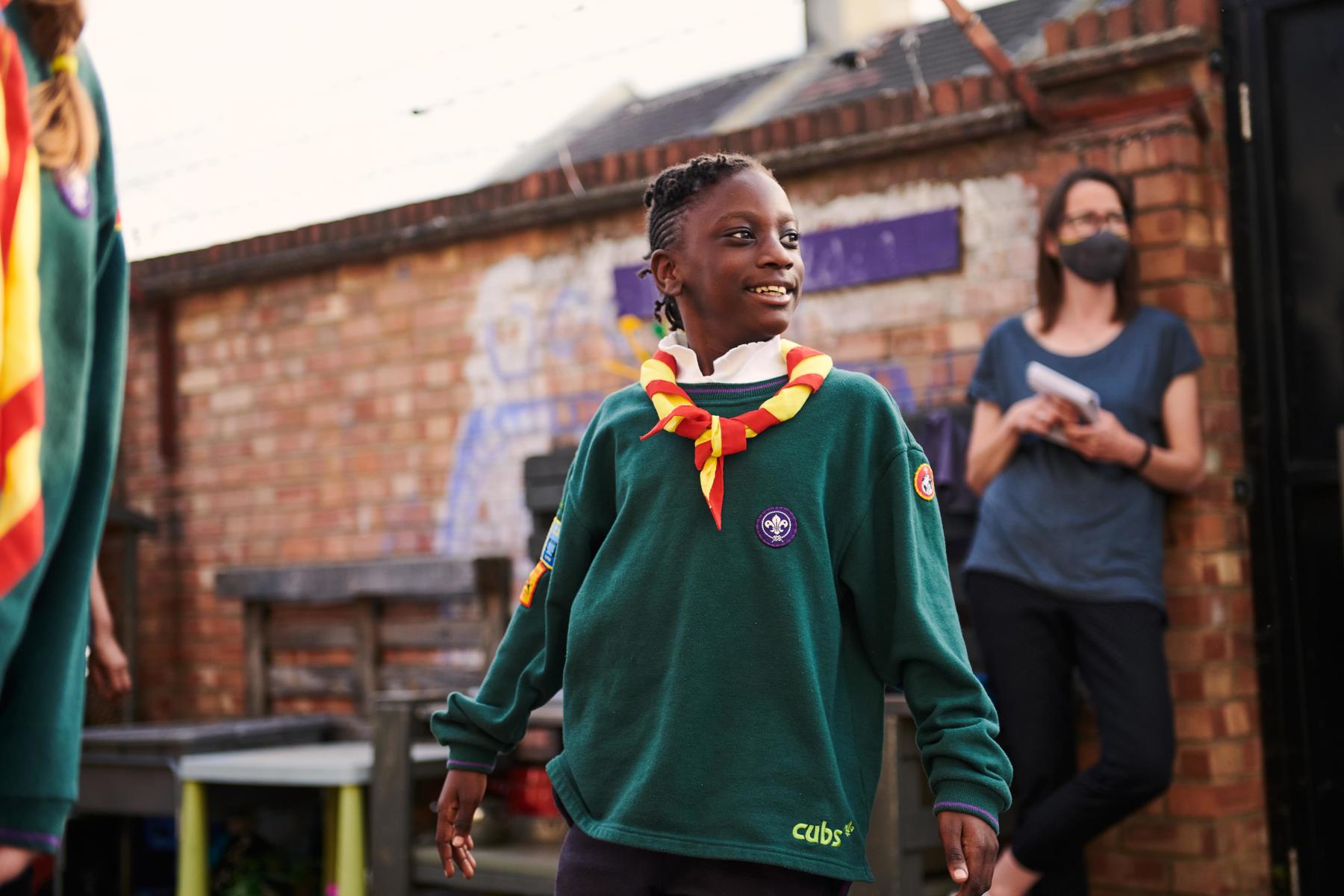
51. Divide and conquer. No one can run Scouts by themselves. Divvy up the tasks with your other volunteers, but make sure everyone gets their fair share of fun ones, like handing out badges, and less-fun ones, like cleaning the loo!
52. Ask for help. No one will think any less of you. It takes courage to ask for help, whether that’s from a fellow leader, volunteer manager or mentor. Ask young people to help out too; you could assign weekly tasks to different members.
53. Be kind. Who knows what people have been through before coming to the meeting? Be kind to others, and be kind to yourself too. Make sure you enjoy the programme just as much as the young people do and don’t take on too much. You should be having fun too!
54. Create some breathing space. Young people might have had a hectic day at school or college. Why not plan in some time to be mindful with some yoga or breathing exercises? You could also create a space each week where people can take a quiet break from the activity if needed.
55. Invest in ear defenders. Sometimes the meetings can get a little noisy for some of our members, so having ear defenders on hand can help everyone feel more comfortable.
56. Be a friend to all. By being kind and approachable, you set the tone for your group.
57. Talk to someone. If you’re having a tough time at Scouts, or in another part of your life, don’t bottle it up. A problem shared is a problem halved, so talk to your volunteer manager in confidence. Remember, you will get through to the other side of the issue you’re facing.
58. Take a week off. Feeling burnt out? Why not ask your volunteer manager or another volunteer to step in while you recharge with a hot bath?
59. Celebrate difference. We’re proud to welcome people from every background into Scouts - let’s keep doing it. From Pride and Remembrance to Black History Month and Diwali, use our activity finder to help mark a range of events throughout the year.
60. Be inclusive and accessible. Have a look at our practical tips on how you can make your group inclusive and accessible. You could also look into our grant funding to make sure everyone in your group is supported in the best way possible.

61. Smile in the face of difficulty. This was one of our Robert Baden-Powell’s favourite bits of advice. He also recommended whistling, although let’s face it, that can get annoying after a while.
62. Never give up. This is one of our Chief Scout’s favourite sayings. You can have a whole day, week or even a year full of setbacks, and if you keep getting back up again, you’ll get there in the end.
63. Look back. Take time to learn more about the story of Scouts, and be inspired by how it grew from an experimental camp for 20 young people to today’s worldwide movement of 57 million members. We must be doing something right.
64. Be true to yourself. This might be something we’ve stolen from Shakespeare, but it’s as relevant today as ever. Bring your whole, authentic self to Scouts, and people will respond to your openness and honesty.
65. Find a mentor. This could be a leader from another group, or someone not even connected with Scouts. Just someone who’ll listen and give you the best advice they can.
66. Celebrate little wins. If a Scout has just learnt how to light a fire with a flint and steel for the first time, make it a big thing. The feel good factor is everything, and don’t forget to tell their parents too.
67. Do your best. Nobody’s perfect and nobody expects you to be.
68. Give people a shout-out. If someone’s done something amazing, then mention it at the meeting. You could start having a Scout of the Week for those who have demonstrated our core beliefs well. Remember, offer praise in public, but give guidance and advice in a quieter setting.
69. Share the joy. Parents and guardians love to see what their children have been doing. Some leaders choose to make a little video during the meeting and share it that same evening via a private Facebook group. However, don’t forget to have photo permission forms signed first.
70. Make time to reflect. Sometimes we charge through a meeting without thinking about what skills we’ve learned. Take some time at the end of your meeting or activity to ask people what they learned and how they feel.
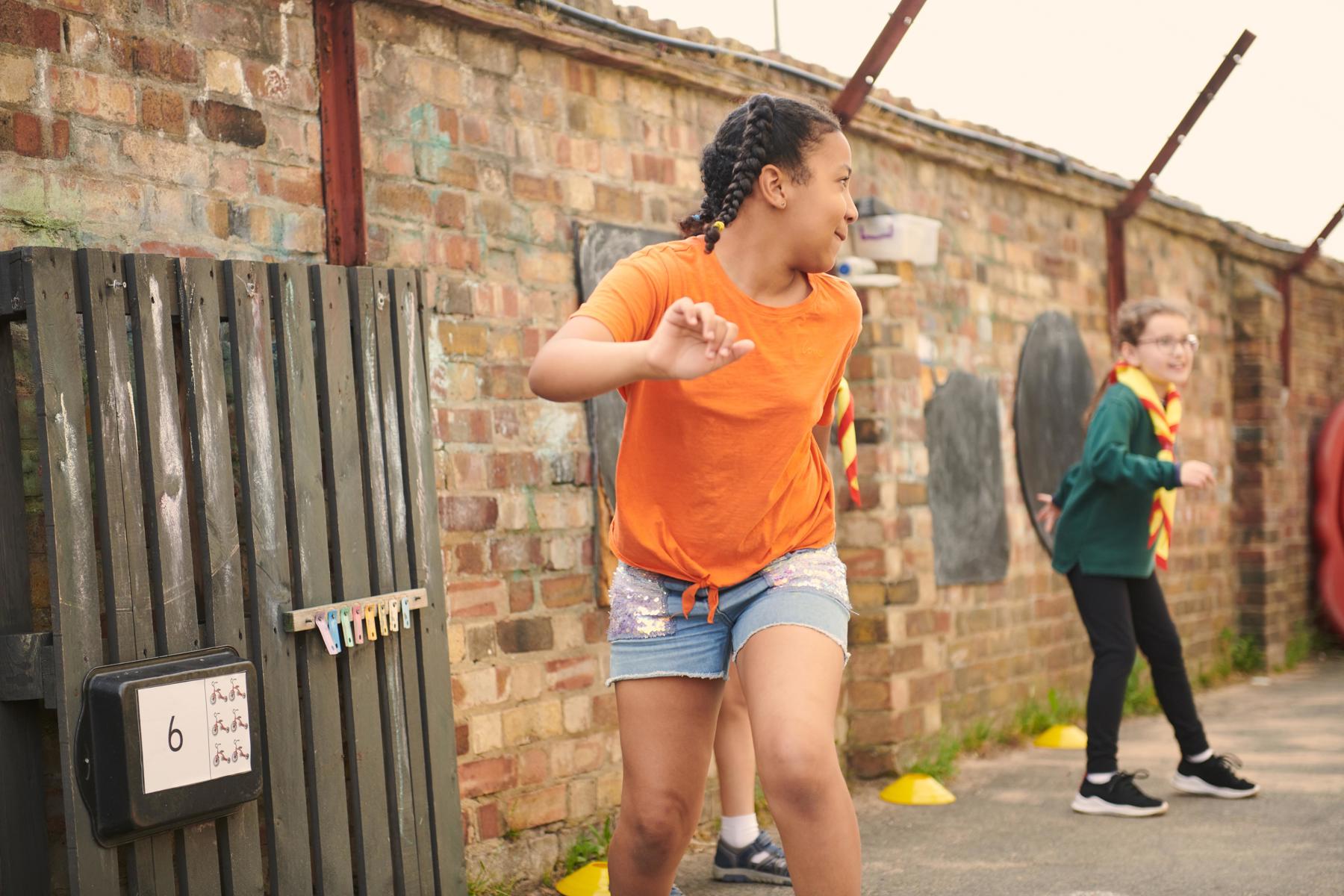
71. Think of others before yourself. You’re already doing this by volunteering for Scouts but think about how you can help your team rather than how they can help you.
72. Talk to other volunteers. They might have fantastic stories, advice and ideas from years of experience. Don’t forget, by the age of 24 someone might have 10 years’ worth of knowledge from being a young leader!
73. Think about the difference you make to young people’s lives. You’re not just making a difference for this week, but you’re inspiring them for their years, and careers, ahead.
74. Ask for opinions. Talk to your other volunteers when you need to decide on something. Not only will you get a different perspective, but it also shows them that you value their input too.
75. Aim to be the most cheerful person in the room. If everyone else is moaning, be the one who isn’t. This applies in all aspects of life, not just in Scouts.
76. Listen more than you speak. Take the time to get to know your group as individuals and keep listening to their thoughts and ideas.
77. Try sending a card. Young people love to receive post. Why not write cards to your group at the end of each term? You could include a memory of what they’ve achieved so far in Scouts or tell them how proud you are of them.
78. Boost your CV. Look into how you can use your volunteering experience to help you in your career. Don’t forget to add those key skills, such as time management, working with young people and organisation, to your next application.
79. Run a ‘#GoodForYou’ recruitment campaign. Use our resources to run a campaign showing how volunteering is good for your skills and CV, your local community, and your health and happiness too. Why not try a shout-out in a local Facebook community group?
80. See how someone else does it. Ask to see if you can sit in on someone else’s meeting, such as your local Guides, Army Cadets or even another volunteer’s group for your section. What tips can you pick up along the way?
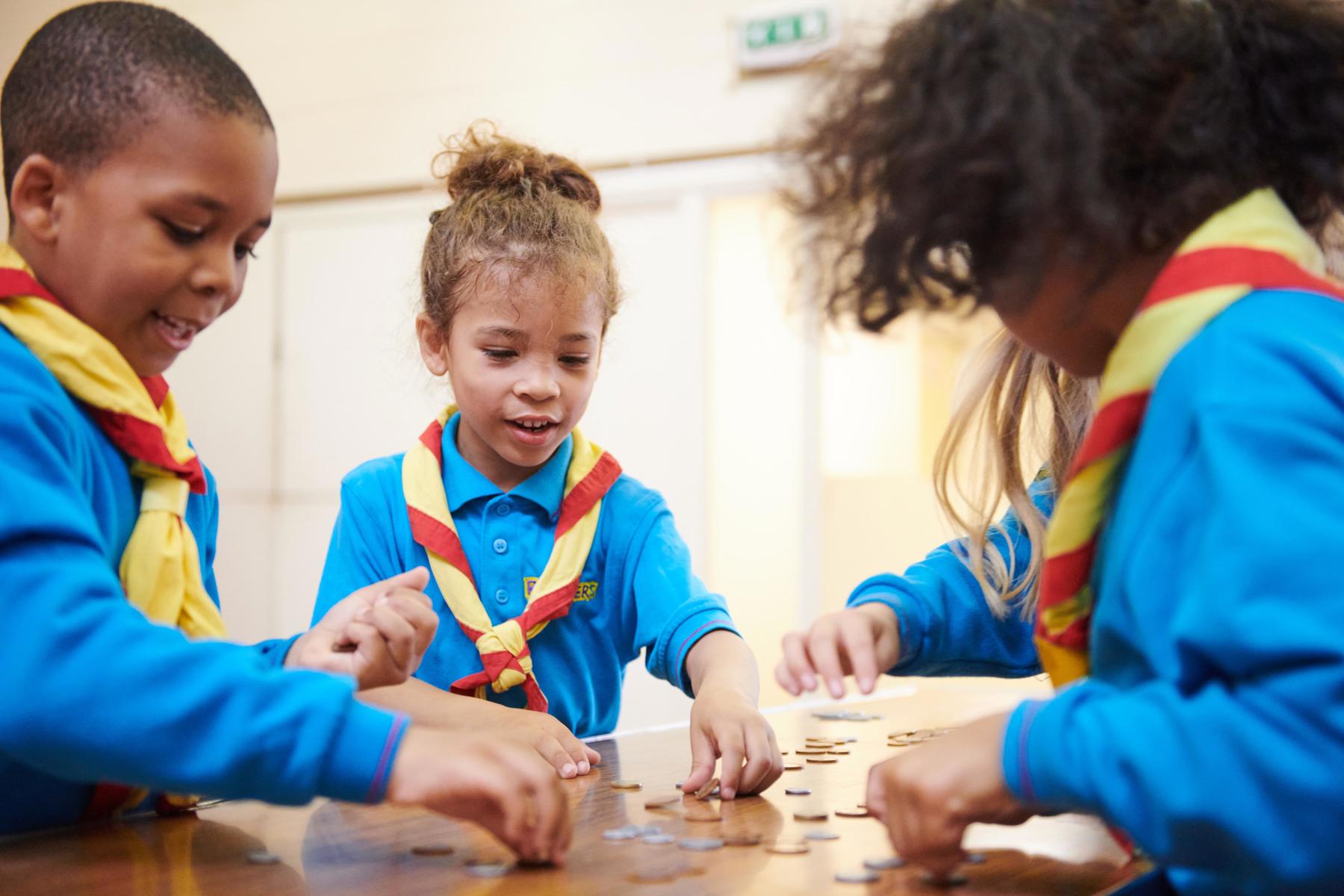
81. Recruit some Young Leaders. Not only will you be supporting the volunteers of the future, but you’ll be also getting an extra pair of helping hands too. Give them a job to do right away so they feel valued and needed and if you use names, such as Akela, make sure they get one too.
82. Create a great culture. Your smile and positivity count for so much. It’s about the atmosphere that you create just as much as the activities that you run. Our supportive, non-competitive and friendly environment helps our young members to grow.
83. Be a role model. Remember, Scouts are watching what you do and listening to what you say, even if you think they’re looking the other way. You’re a role model, so in the words of that great philosopher Spider-Man, ‘with great power comes great responsibility.’
84. Create a warm welcome. Have a chat before their first meeting about their interests, skills and motivations for volunteering, so you have an idea of what they might enjoy doing from the get-go. Find out more here about how to give an amazing welcome.
85. Have email templates that are ready to go and have them saved on your tablet, laptop or even on your phone! It means you can quickly respond to any enquiries with the same friendly welcome each time.
86. Start socialising. Don’t forget to make time to get to know other volunteers outside your meetings. You might choose to go climbing, for a walk, or for coffee and cake, but spend time making friends and you’ll find each week a lot more fun.
87. Bring a friend. If you’re needing to get some new recruits, whether it’s volunteers, young leaders or young people, why not run a bring a friend night and get everyone joining in with the fun?
88. Widen your circle. Join a forum, or get involved with a District, County or National team to share your talents. Remember, we’re all one family of Scouts, and there’s a world beyond your section or group.
89. Put the fun back in to fundraising. There’s more to life than bag packing, although we know that’s helped to fund a lot of trips. Why not try an epic virtual challenge instead, such as climbing Everest together by walking up a local hill a few times? By the way, Everest is 8,445 metres high. That’s the equivalent to climbing 17,475 stairs!
90. Look local. What could your group do that will really make a difference where you live? Scouts have done incredible things supporting communities across the nation, especially during the pandemic.
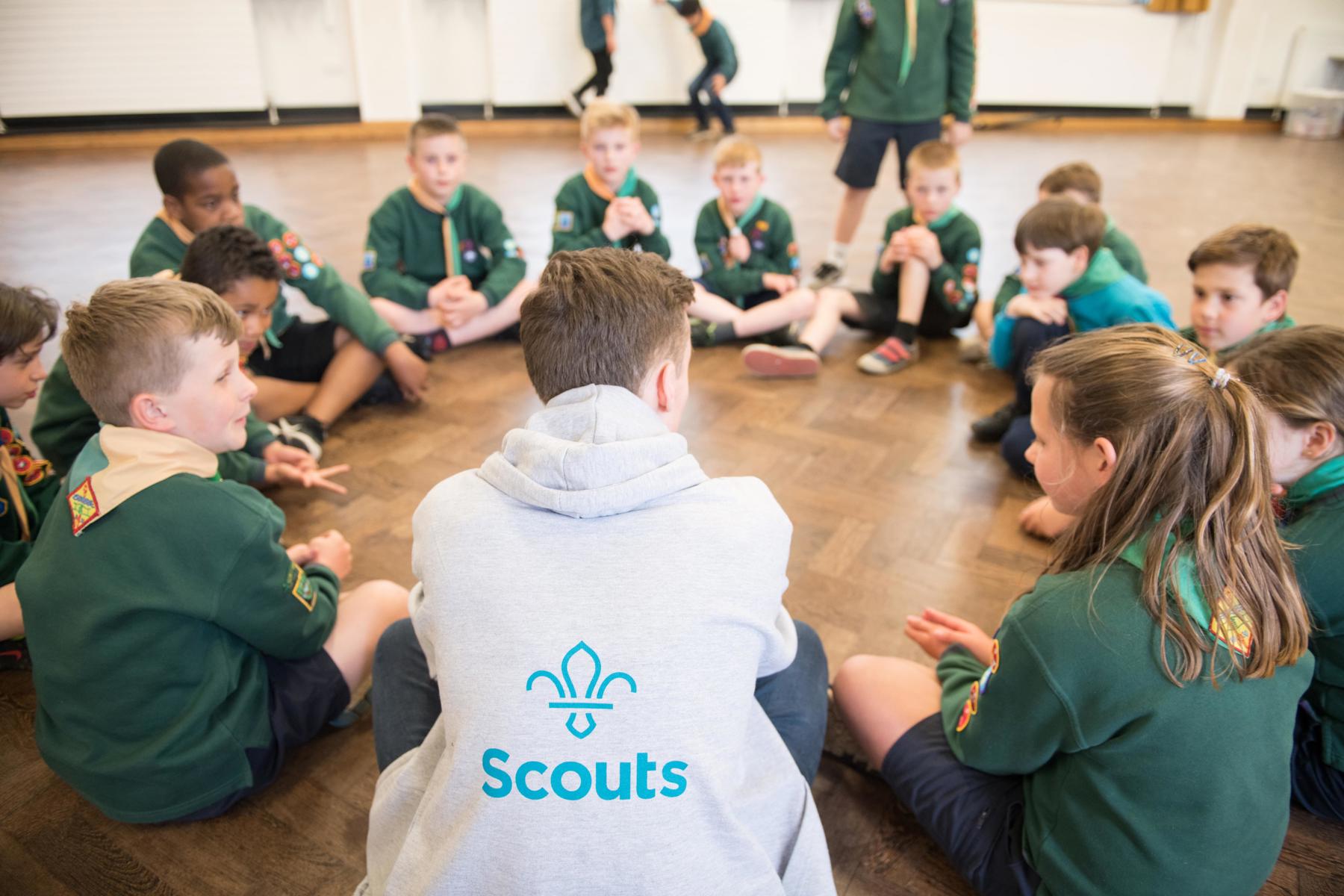
91. Think small. Lots of small donations can make a big impact. Look into micro-giving and how it could help your group’s finances.
92. Get your Gift Aid sorted. Every group is a charity, so they’re able to claim 25% on eligible donations made to them by UK taxpayers. It doesn’t take too long to get set up, and you might be surprised by how much you can claim back. Find out more about claiming Gift Aid.
93. Go green. How can you make Scouts more sustainable? Your Scouts will have some great ideas. Don’t forget that reusing and recycling can save and earn you money.
94. Share your successes. We can all do with good news stories at the moment. Don’t forget to share yours with local media. Why not take it as a chance to call out for new volunteers too?
95. Get behind a cause. Find out what your Scouts are passionate about and get them involved in some social action. We’ve got heaps of ideas and support on our Million Hands.
96. Use your Scout discount. You do great things, and you deserve all the treats and discounts you can get. Find an up-to-date list, including deals, at Scout Store.
97. Be on brand. We’ve got stacks of images, videos, logos and guidance to show that you’re part of the family of UK Scouts. Look at the brand centre.
98. Follow us on social media. It’s where we share all the latest news, great ideas and other fun stuff. You can find us on Twitter, Instagram and Facebook.
99. Take a moment. Always stop to look around and appreciate the magic that is happening right in front of you.
100. Remember, you’re amazing. You’re already doing something amazing by volunteering for Scouts. So be kind to yourself just do your best. No one can ask for more.
